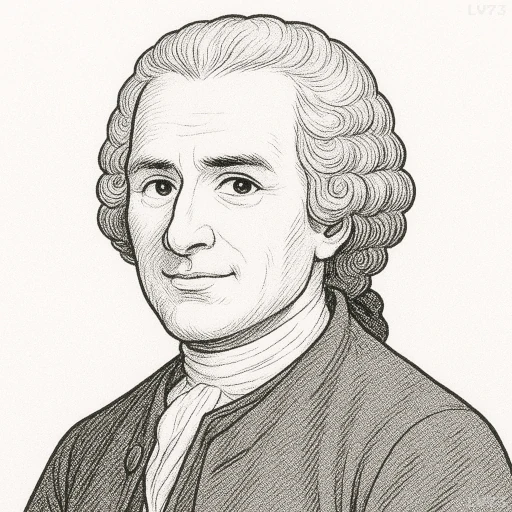“Whoever blushes is already guilty; true innocence is ashamed of nothing.”

- June 28, 1712 – July 2, 1778
- Born in Geneva
- Philosopher, political philosopher, writer, composer
table of contents
Quote
“Whoever blushes is already guilty; true innocence is ashamed of nothing.”
Explanation
In this quote, Jean-Jacques Rousseau makes a profound statement about innocence and guilt. He suggests that the act of blushing, often associated with embarrassment, shame, or self-consciousness, is an indication that a person feels they have done something wrong or are at least perceived to have done so. In Rousseau’s view, if someone blushes, it implies they are already aware of their own imperfection or transgression. True innocence, however, is free from this self-awareness and has nothing to hide, so it would not feel ashamed or embarrassed. Rousseau’s idea aligns with his broader philosophy that authenticity and natural goodness do not involve the internal conflicts or moral guilt that come from societal rules and expectations.
Historically, Rousseau’s view on guilt and innocence ties into his critique of society and its influence on the individual. He believed that in the state of nature, humans were innocent and virtuous, unburdened by the artificial distinctions and moral judgments imposed by society. In contrast, once individuals entered civilized society, they became aware of norms and expectations that led to feelings of guilt or shame, even for behaviors that might not be intrinsically wrong. Rousseau’s critique of social norms suggests that feelings of guilt are often socially constructed, and that true innocence is not bound by these constructs.
In modern times, Rousseau’s idea about shame and innocence still resonates, especially in the context of self-perception and societal expectations. In a world that often encourages individuals to conform to external standards—whether in terms of appearance, behavior, or achievement—there can be a tendency to feel guilty or ashamed even in the absence of actual wrongdoing. Rousseau’s quote challenges us to reconsider the influence of society on our internal sense of morality and encourages us to embrace a pure, unselfconscious form of innocence—one that is not shaped by external judgments, but by personal authenticity and natural goodness.
Would you like to share your impressions or related stories about this quote in the comments section?



